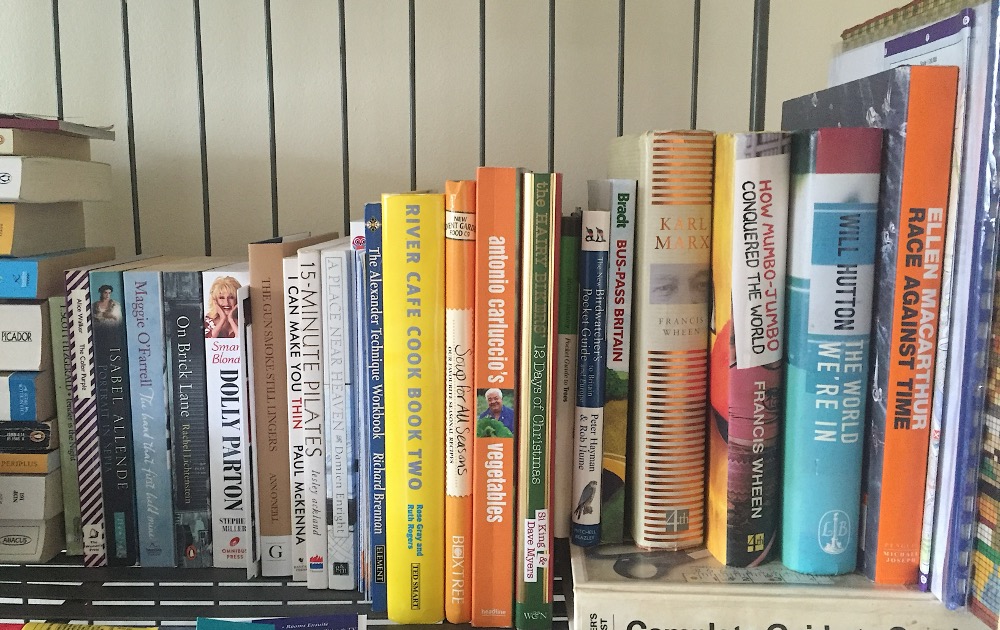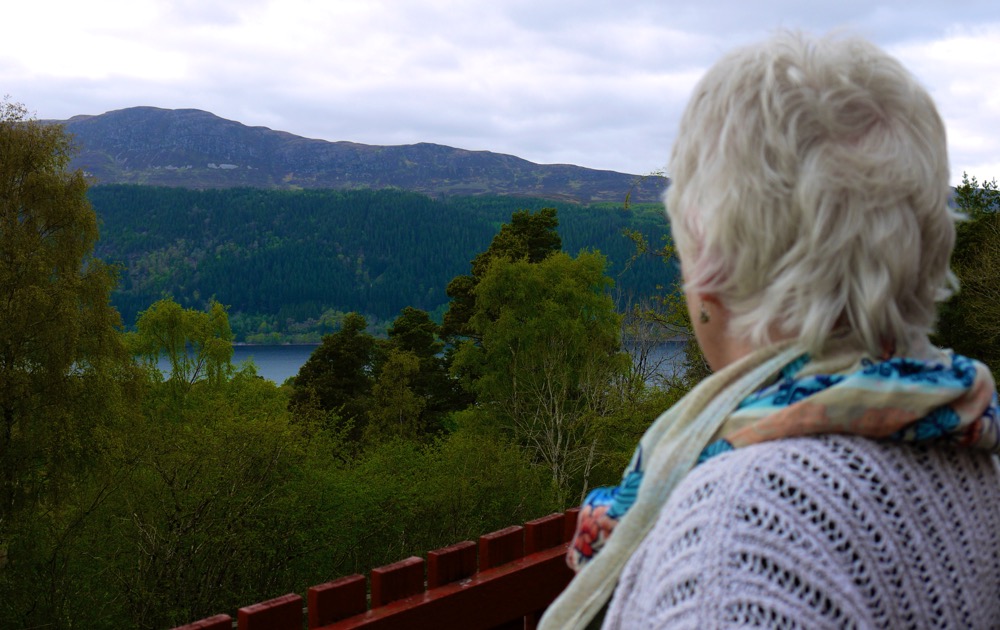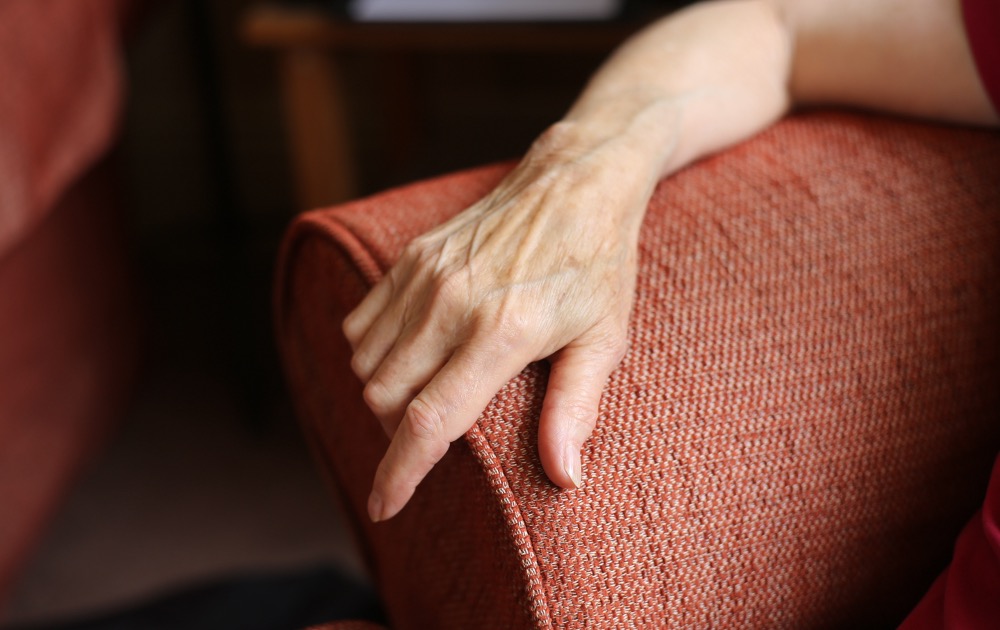Glad to be Grey

A few years ago now, we carried out some work for an insurance provider for those over fifty years old. Hired by a London-based agency to smash the myths around the market, we interviewed the audience up and down the UK, talking to people in their 50s, 60s, and 70s. Perhaps wondering if it was going to be a little sedate, maybe even boring, I found I had my own bias beforehand, although I’m well aware that my own parents - in their seventies at the time - were anything but boring or sedate. And, of course, I was entirely wrong about both presumptions.
From conducting interviews on the back of a 68-year-old’s motorbike to a 66-year-old woman in Scotland who told us she had been ‘a drug mule in Mexico by mistake on holiday’, to having to wait patiently for the interview to begin with a 52-year-old in Essex who was on a coke come-down [“Sunday is my Saturday”], it was all a bit bonkers. We had a pottery lesson in the shed in Solihull, we had a gong bath in an old, renovated library in Stoke and in Surrey, Ruby got scolded by a beautiful Indian mum for having “unruly eyebrows”. [She was promptly whisked away to have them threaded in the garage.]

We’re always spoken to as if we don’t have a brain, as if we can’t think for ourselves. There’s still intelligence there, we’re not all going down with Alzheimer’s! There’s this attitude that, because I’m in my 70s, everything has to be explained very simply to me… But I probably know a far lot more than the person selling it to me.
Jane, 71, Solihull
Typically more financially stable than the rest of us, the grey market tend to have paid off their mortgages, have savings invested that are reaping great rewards and know their way around inheritance tax. With children often grown up, some of the ‘weight’ of mum and dad is lifted. Of course, it still tends to continue to ebb and flow throughout their life, especially with their children [and grandchildren] being up against the financial problems they are.

Indeed, according to Global Web Index data from 2022, over half of those aged between 55-64 [52%] still see themselves as ‘financially secure’ in their age, while 13% add the word ‘very’ to the front of that sentence. Think about it: what other market of consumers can call themselves ‘very financially secure’ right now…?
As an audience, they’re already spending £319 billion a year on ‘things’ [excluding housing costs], which is around 54% of total household spending. They spend more on all categories across the board, other than clothing and footwear [they know what they like and they stick to it, fast fashion is behind them]. And - to add to that mix - by 2040, they’re expected to be spending nearly £550 billion a year as an age bracket.
We’re like the Sahara Desert. People know the desert is there, but they don’t want to go there. We have the time and money to buy things, but no one wants to talk to us… Do they think I’m sitting here not doing anything? Fuck that.
Raj, 57, Surbiton
But marketing still seems so outdated for them. As Raj, quoted above, continues, “At our age, we have the power to make a brand what it is. But as a market, I think we’re completely misunderstood in terms of our spending power. They all neglect us, but we have a lot to offer.” Raj is right, according to the WARC, less than a quarter [225] of marketeers directly target this age group as a demographic, even though it will account for 66% of total retail spending in the next few years.
The marketers really need to buck their ideas up and start looking around. If I had to sit down with the ad industry people, I’d say ‘get out there and meet some real people, people who actually have a real life…’ I think they just assume I’ve got a wheelie trolley thing and I’m going round the supermarket with it.
June, 66, Inverness

Alongside this, we’re literally living longer as a race. This is not a market that’s going to decrease, but rather increase. Having invested in improving birth rates, government spending was then focused on not dying, and they’ve been successful. In Japan - a country seen as leading the way in terms of demography trends - there are over 79,000 centenarians in a population of just 120 million people. In 2020 in the UK, we had just under 13,000 centenarians now, an increase of 20% from the year before. Not dying is a reality, and may improve even further with the successes of AI in the medical sector [unless AI kills us first, of course, but more on that another time]. Immediately, brands can do better simply by using larger fonts on the packaging, but hell, perhaps that’s not pretty enough for the profit.
Over and over, I see brands talking to the Grey Market as if they’re some fragile demographic who have given up on life rather than one very much getting on with life [arguably a lot better than the rest of us]. As 55-year-old Mandy in Chester told us, “It’s not as if I have one foot in the grave and the other one on a bar of soap, ready to slip and land in the grave at any moment!? But that’s how these brands talk to me…” [To further hammer her point home, Mandy lifted up her dress, bared her bum at us, and showed us her new tattoo of a fairy she’d got inked across one cheek…]
After you’re 40, brands stop involving you or talking to you. You become invisible. Then, after your 40s and 50s, they return to talk to you - in your 60s - to talk to you about the last days of your life! That’s when they spend money on you again.
Raj, 57, Surbiton

Just as the industry can do more to target Gen X properly, so too can we continue to learn to keep up with the market of over 50-year–olds. If you want more information, we have a report coming up for sale in September that you can contact us about here. As 62-year-old June from Stoke-on-Trent introduces it: “We wear what we want. We embarrass the kids. We go out at midnight. We don’t think we have to be a certain way. In that way, we’re just very authentic at this age.”